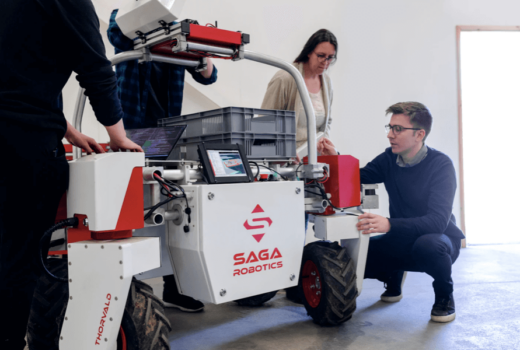Meta-universiteit in de maak

Omdat de nieuwe instelling – in Boston of omgeving te starten – geen winstoogmerk kent, kunnen alle inkomsten teruggeploegd worden in het primair proces en dienstverlening aan de samenleving. Tegen de Chronicle zegt Ortiz, dat zij wil voortbouwen op de lange termijn visie van de vroegere MIT-president, Charles Vest . “The fundamental idea is to put all knowledge acquisition virtually online.” Zij herinnert eraan dat Vest “predicted it 10 or 15 years ago, that the virtually open curriculum metacurriculum would be emerging. And that’s what is happening. So we’re sort of betting that the evolution that is happening very rapidly, that we’re going to take advantage of that.”
Vests Delftse visie
In 2008 heeft Vest die visie in ons land gepresenteerd in een rede tijdens de Dies van de TU Delft. Hij bracht toen de volgende kerngedachten naar voren. “Broadly speaking, we are moving from the 20th century that was dominated by physics, electronics, and high-speed communication and transportation into the 21st century whose early decades will emphasize biology and information and also bring grand challenges such as energy, water, and sustainability.”
“Higher education must make innovative uses of digital technologies to share scholarly resources and educational content worldwide. Free or inexpensive digital archives and the open educational content movement stimulated in large part by MIT’s OpenCoureWare initiative are creating a Meta University.”
“This can become a transcendent, communally constructed framework of open materials and platforms on which much of higher education can be built or enhanced. This can raise quality, gain cost efficiencies through sharing, and be especially helpful to developing countries.”
Diepe projecten
Ortiz wil onderwijsinnovaties binnen MIT die hier op zijn gaan voortbouwen – zoals het Media Lab waar Fontys mee samenwerkt – integreren tot een nieuw type hoger onderwijs. “Basically the idea is that we’ll have a core that’s project-based learning, but where students can have a really deep, integrative longer-term project rather than shorter projects. And then all of the knowledge acquisition would be moved virtually.”
“Instead of projects being at the periphery, to sort of flip it more toward the graduate-education model. And I think it would be much more inspirational for the students because they could come in and really work on projects from the get-go that they wanted to work on and that they were most passionate about, and they could tailor their knowledge base to the projects they want to work on.”
De klassieke hoor- en werkcolleges willen de initiatiefnemers vervangen door werkwijzen die vanuit de interactie tijdens MOOCs en dergelijke open education typen in ontwikkeling zijn gekomen. “What’s happening online is that now this is being modularized, and there’s active learning embedded into the whole system. As you see with MOOCs, they’re modularized. Every five or 10 minutes, there are chunks where there’s active learning and recall, and all these different mechanisms of learning embedded into the system.”
Langs twee grenzen
Charles Vest beschreef deze ontwikkelingen in Delft als volgt: “Research universities face challenges to educate students appropriately for the new century and to lead and contribute the discovery of new knowledge and technologies. They must work at two frontiers of engineering: the Bio/Nano/Info Frontier and the Macrosystems frontier.”
“The Bio/Nano/Info Frontier explores and develops things that are becoming smaller, faster, and more complex. At this frontier engineering and natural science have merged to develop new materials, processes, and systems by integrating nano-scale physical science, biology, and information technology.”
“At the Macrosystems Frontier, engineering research and projects must address the great human challenges of energy, climate change, water, healthcare, urbanization, manufacturing, communications, and logistics. These areas also are highly interdisciplinary because engineering must be integrated with social science, management, and humanities. Very important work will bridge from the Bio/Nano/Info Frontier to the Macrosystems Frontier through applications such as bio-based materials, biomemetics, personalized medicine, and biofuels.”
Meest Gelezen
Vrouwen houden universiteit draaiende, maar krijgen daarvoor geen waardering
Wederom intimidatie van journalisten door universiteit, nu in Delft
Hbo-docent wil wel rolmodel zijn, maar niet eigen moreel kompas opdringen
‘Burgerschapsonderwijs moet ook verplicht worden in hbo en wo’
Raad van State: laat taaltoets nog niet gelden voor hbo-opleidingen



